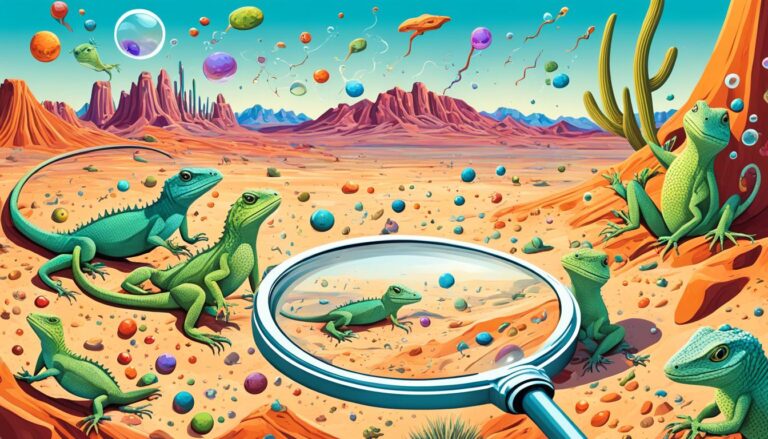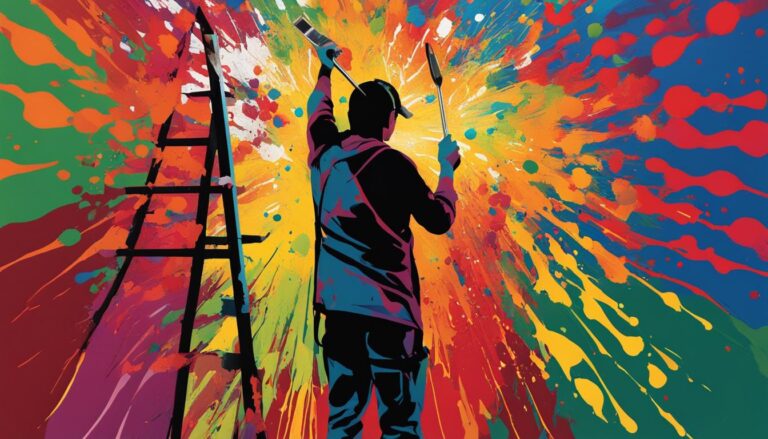What Does It Mean When You Dream About Drugs?
Drug dreams can be a common occurrence for individuals who have struggled with addiction or are in the process of recovery. These dreams can hold significant meaning and provide insights into the individual’s journey. Drug dreams in early sobriety often involve vivid scenarios where the dreamer may feel the sensation of using drugs or searching for them.
These dreams reflect the internal struggles and conflicts faced by individuals as they strive to commit to recovery and let go of their previous drug use habits. Drug dreams can also serve as a valuable tool for self-reflection and understanding, highlighting unresolved emotions, triggers, or areas of vulnerability that need to be addressed in the recovery process.
Key Takeaways:
- Dreaming about drugs is common for those with a history of addiction or in recovery.
- Drug dreams can provide insights into an individual’s internal struggles and conflicts.
- Early sobriety dreams often involve vivid scenarios of drug use or searching for drugs.
- Drug dreams serve as a tool for self-reflection and understanding unresolved emotions.
- Addressing triggers and vulnerabilities highlighted in drug dreams is crucial for successful recovery.
Significance of Drug Dreams
Drug dreams, a phenomenon commonly experienced in early sobriety, hold significant psychological and symbolic meanings. These dreams often present vivid scenarios where the dreamer finds themselves engaging in drug use or searching for drugs. While these dreams can be distressing, they offer valuable insights into the internal struggles and conflicts faced by individuals on their path to recovery.
Drug dreams serve as a reflection of the journey to commit to sobriety and let go of previous drug use habits. They provide a platform for self-reflection, shedding light on unresolved emotions, triggers, and areas of vulnerability that need attention in the recovery process. By delving into the emotional and symbolic aspects of these dreams, individuals can gain a deeper understanding of themselves, their past experiences, and their ongoing recovery.
Psychologically, drug dreams may be a manifestation of the mind processing the psychological effects and impact of drug use. They can highlight the underlying psychological factors that contribute to addiction and offer valuable insights into the complexity of addiction psychology. Analyzing drug dreams can aid in uncovering unconscious desires, fears, or unresolved issues that need to be addressed for long-term recovery.
Moreover, drug dreams can be seen as a metaphorical representation of unresolved conflicts or psychological cravings for substances. Symbolism plays a crucial role in decoding the meaning behind drug dreams. The specific drugs, settings, and emotions experienced in these dreams can provide valuable clues for understanding the underlying psychological factors at play. Drug symbolism in dreams can be interpreted as a reflection of unmet emotional needs, the desire for escapism, or the challenges of navigating a sober lifestyle.
Understanding the significance of drug dreams through analysis and interpretation empowers individuals in their recovery journey. By recognizing and addressing the emotions, triggers, and psychological vulnerabilities presented in these dreams, individuals can cultivate resilience, strengthen their commitment to sobriety, and bring about positive change.
Patterns in Recovery Dreams
As you progress through your recovery journey, you may notice a shift in the patterns of your dreams involving drugs. After approximately six months of sobriety, it is common for individuals to experience a transition from drug-using dreams to drug-refusing dreams. These drug-refusing dreams involve scenarios where you consciously resist the temptation to use drugs.
Within the context of dream interpretation, these drug-refusing dreams can hold significant meaning. They often signify progress and a strengthening of your commitment to recovery. In these dreams, you are actively choosing to reject drugs, symbolizing your determination to maintain abstinence and lead a healthier life.
It is important to understand that drug dreams can evolve over time and may not solely focus on your primary drug of choice. As your recovery progresses, the content and themes of your dreams may change, reflecting the shifting nature of your relationship with substances. Your mind is processing the challenges you face and integrating them into your journey of healing and growth.
Embedded within these evolving dream scenarios are powerful symbols and emotions that can provide insights into your recovery process. They offer an opportunity for deeper introspection, allowing you to examine your thoughts, feelings, and motivations surrounding substance use. By paying attention to these dreams and reflecting on their meaning, you can gain valuable psychological insights and strengthen your commitment to sobriety.
Protecting Your Progress
During recovery, it is essential to prioritize your well-being and protect the progress you have made. Drug-related dreams can sometimes trigger cravings or a sense of loss, as your mind revisits the familiarity of old patterns. Remember that dreams are a natural part of the healing process, and experiencing drug dreams does not indicate a setback in recovery.
To maintain your commitment to sobriety, it can be helpful to:
- Engage in regular therapy sessions to process and understand the emotions associated with your dreams
- Practice healthy coping mechanisms, such as mindfulness, meditation, or physical exercise, to manage stress and cravings
- Build a strong support network of friends, family, and fellow individuals in recovery who can offer encouragement and understanding
- Maintain open and honest communication with your healthcare professionals to address any concerns or challenges you may face
By focusing on your recovery journey and utilizing the tools and support available to you, you can navigate the patterns in your dreams with resilience and continue to progress towards a fulfilling and drug-free life.
Psychological Perspective on Drug Dreams
When it comes to understanding the meaning behind drug dreams, a psychological perspective can provide valuable insights. One notable perspective on drug dreams comes from Claudio Colace, an Italian psychologist who specializes in addiction. Colace views drug dreams as a “thermometer of drug craving,” offering individuals in recovery an opportunity to identify any unconscious increases in their desire for drugs.
By paying attention to these dreams, individuals can gain a deeper understanding of their subconscious cravings and use this awareness to reinforce their commitment to recovery. Drug dreams often serve as a reflection of unconscious desires, cravings, and unresolved issues. They tend to occur most frequently during the early stages of sobriety and may involve vivid scenarios, such as feeling the sensation of drugs entering the body or searching for drugs.
Recognizing the presence of unconscious cravings and exploring their origins can be an essential part of the recovery journey. By delving into the underlying meaning of drug dreams and uncovering the emotions and experiences they may represent, individuals can better navigate their path to recovery and develop effective coping strategies.

Understanding the psychological perspective on drug dreams can provide valuable insights into one’s inner world and facilitate personal growth. By addressing the underlying factors contributing to these dreams, individuals can gain a deeper awareness of their emotional and psychological needs, allowing them to make more informed decisions on their recovery journey.
Emotional and Symbolic Meanings
Dreams about drugs can hold emotional and symbolic significance, offering insights into the inner workings of the mind. When you experience drug dreams, it’s important to understand that they are not literal cravings or indications of relapse. Instead, they serve as invitations to explore deeper emotions, unresolved issues, and unmet needs.
Drug dreams often manifest as a manifestation of stress and the need for healthy coping mechanisms. They can reveal underlying issues or anxieties that you may be facing in your waking life. By delving into the emotions associated with these dreams, you gain a better understanding of your current state of mind.
These dreams may symbolize a desire for altered states of consciousness or a longing for experiences outside the realm of everyday life. They can serve as a reminder of the importance of finding healthy outlets for exploration and self-expression.
Exploring the emotional and symbolic meanings behind drug dreams can provide valuable insights for your recovery journey. It’s essential to remember that seeking professional guidance, such as psychotherapy or dream analysis, can help decipher the underlying messages encoded within these dreams.
By acknowledging and addressing the emotions and symbolism within your drug dreams, you can gain a deeper understanding of yourself, your desires, and your aspirations. This self-awareness is crucial in developing healthy coping mechanisms, building support systems, and fostering personal growth on your path to recovery.
Evolution of Drug Dreams in Recovery
Drug dreams, also known as using dreams, can provide valuable insights into the psychology and emotional journey of individuals in recovery from addiction. These dreams reflect the complex and multi-faceted process of achieving and maintaining sobriety.
In the early stages of sobriety, drug dreams can be particularly vivid and intense. They often involve scenarios where the dreamer experiences the sensation of using drugs or searching for drugs. These dreams may be accompanied by feelings of guilt, anxiety, or a sense of loss. They can serve as reminders of the challenges faced in recovery and the lingering psychological effects of addiction.
As individuals progress in their recovery journey, there is often an evolution in the themes and content of drug dreams. Many individuals report a transition from drug-using dreams to drug-refusing dreams. In drug-refusing dreams, the dreamer consciously resists the temptation to use drugs. These dreams can be empowering and signify the strengthening of willpower and determination.
Over time, the frequency of drug dreams generally decreases. This reduction in dream frequency may be an indication of the body and mind gradually adapting to abstinence and a new lifestyle. It can also reflect a decreasing psychological angst about relapse. However, it is important to note that drug dreams can still occur even in long-term recovery.
Drug dream analysis can provide valuable insights into an individual’s emotional state, triggers, and subconscious desires. Exploring the meaning behind drug dreams can aid in self-reflection, understanding underlying issues, and strengthening relapse prevention strategies.
Factors Influencing Drug-Related Dreams
Dreams that involve drug-related elements can be influenced by various factors. These dreams provide valuable insights into the dreamer’s subconscious desires, struggles, or unresolved issues. By exploring and analyzing drug-related dreams, individuals can gain a better understanding of their own psyche and the underlying factors that may contribute to their relationship with drugs.
1. Desire for Experimentation
Drug-related dreams may stem from a natural curiosity about drugs and their effects. These dreams may reflect a subconscious desire to explore new experiences, push boundaries, or break away from societal norms. Exploring these dreams can provide insight into the dreamer’s sense of adventure and their willingness to challenge themselves.
2. Curiosity about Drug Symbolism in Dreams
In addition to curiosity about drugs themselves, individuals may also be intrigued by the symbolism of drugs in dreams. Drug symbolism in dreams can represent altered states of consciousness, escapism, or a desire to escape from reality. Analyzing these dreams can help individuals uncover their deeper desires for relief, freedom, or a need for change.
3. Escape and Comfort
Drug-related dreams can also serve as a means of escape or seeking comfort. In times of stress, anxiety, or emotional turmoil, individuals may turn to drugs in their dreams as a coping mechanism or a way to find solace. These dreams may provide a glimpse into the dreamer’s emotional needs and their quest for relief from life’s challenges.
4. Coping with Stress and Emotional Turmoil
For individuals who have struggled with addiction or have experienced trauma, drug-related dreams may serve as a coping mechanism to process difficult emotions or memories. These dreams can offer a safe space for the subconscious mind to work through unresolved issues, emotions, and triggers related to drugs. By interpreting these dreams, individuals can gain insight into their healing journey and identify areas of growth and personal development.
Drug-related dreams offer a unique window into the dreamer’s psyche. Analyzing these dreams can provide valuable insights into the individual’s desires, struggles, and emotional state. By exploring the symbolism and meanings behind drug-related dreams, individuals can gain a better understanding of themselves and their relationship with drugs.
Psychological Insights from Drug Dreams
Drug dreams can provide valuable insights into the psychology of individuals who have struggled with addiction or are currently in the process of recovery. These dreams serve as a window into the subconscious mind, offering clues about underlying emotions, desires, and unresolved traumas. Through the analysis of drug dream themes and symbols, one can gain a deeper understanding of their own emotional landscape and identify areas that may require further attention and healing.
One possible interpretation of drug dreams is that they represent a yearning for escapism. They may reflect a desire to transcend reality and seek altered states of consciousness. In the context of recovery, these dreams can be a manifestation of the longing for the temporary relief that drugs provided in the past. By recognizing this yearning, individuals can explore healthier ways of finding solace and fulfillment in their sober lives.
Furthermore, drug dreams can serve as a tool for processing unresolved emotions and traumas. They may bring to the surface repressed feelings or memories that have not been adequately addressed. Through the examination of the symbols and events within these dreams, individuals can uncover hidden emotional wounds and work towards their healing and resolution.
By delving into the psychological insights provided by drug dreams, individuals can embark on a journey of personal growth and self-discovery. These dreams offer an opportunity to gain a deeper understanding of oneself and the underlying motivations and triggers that may contribute to addiction. Armed with this knowledge, individuals can develop effective coping strategies and continue their path towards recovery.









